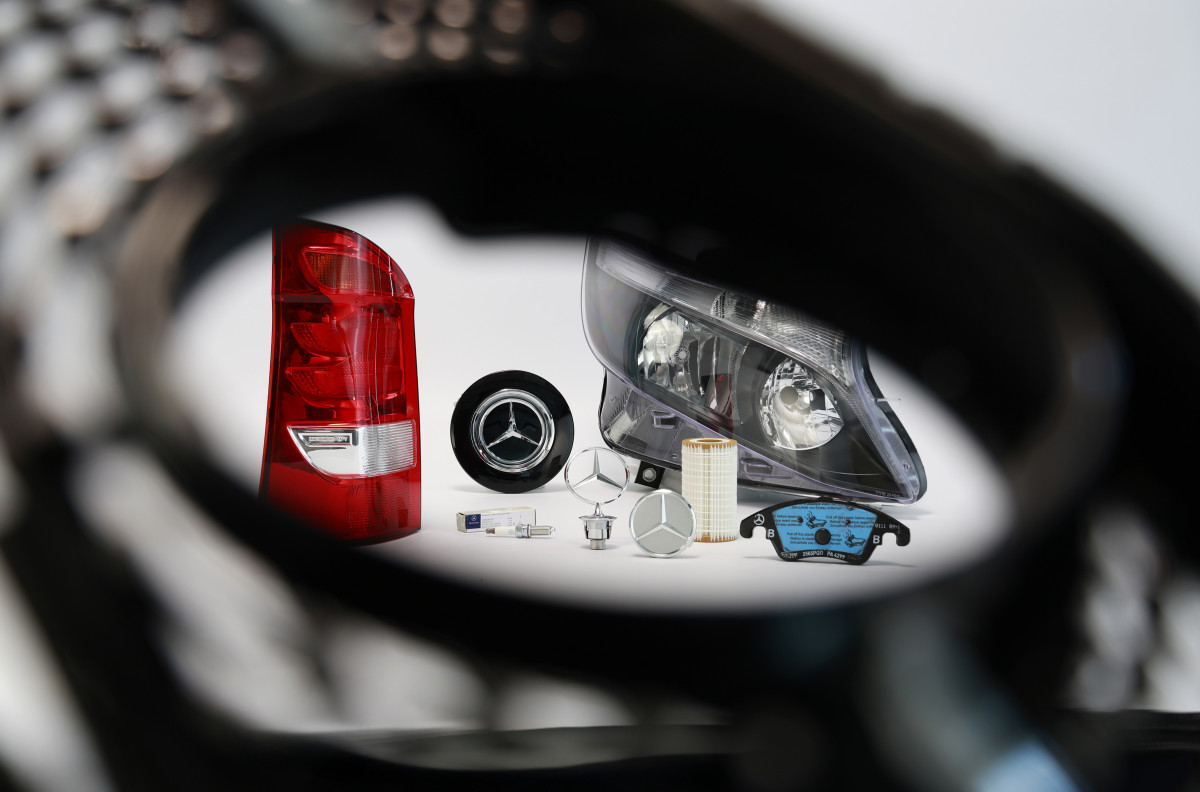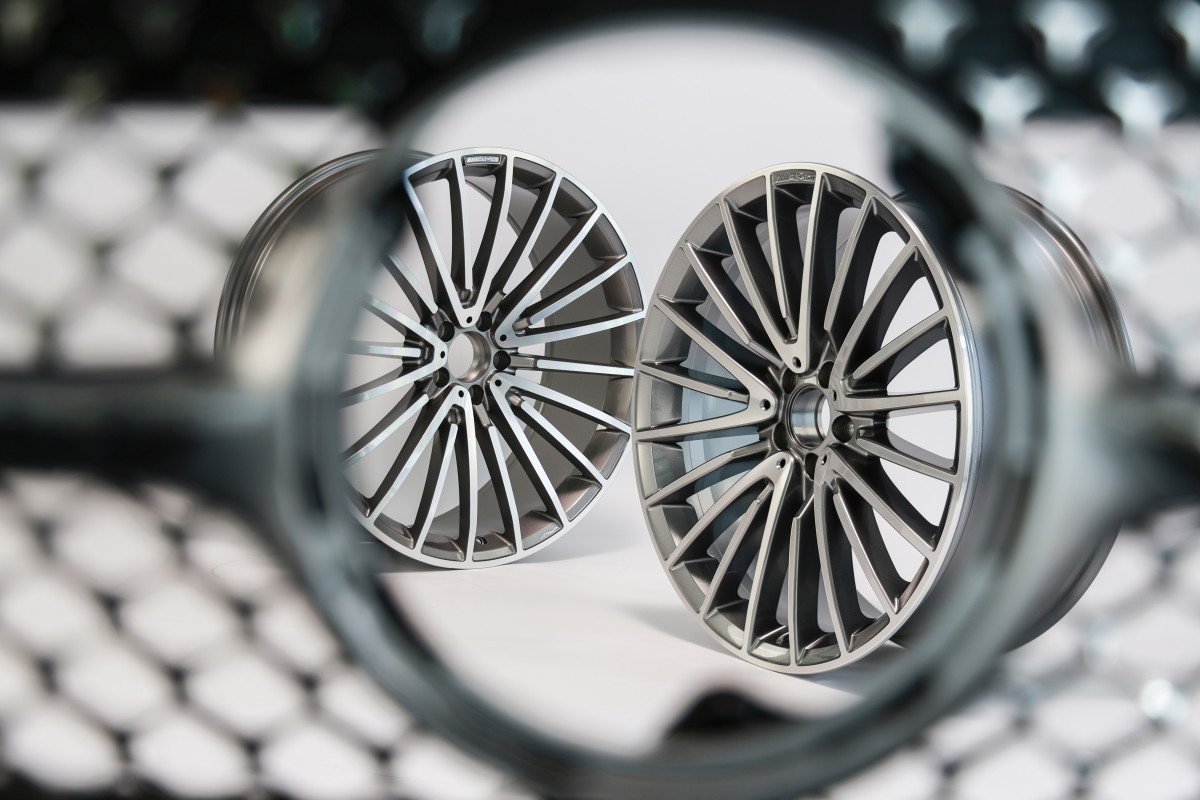Whether at the dealer or DIY, repairing cars with OEM parts is expensive
If you have ever had a car repaired at a dealer, you would know that getting it fixed there is an incredibly expensive endeavour, and for a good reason: genuine car parts aren’t cheap. No matter the part, whether it’s a replacement body panel or an oil or air filter, the premium of having an OEM (original equipment manufacturer) part with the automaker’s name and logo on the box can carry eye-watering price tags that transfer to the owner’s repair bills.
While higher cost can always equal higher quality, it can often be frustrating when you’re footing the bill. When a mechanic or person behind the parts counter tells you that a simple part will cost a few hundred bucks, it’s tempting to look for cheaper alternatives online.

Mercedes-Benz
However, those aftermarket parts can come with a huge catch. In the search for savings, many car owners unknowingly end up with low-quality or counterfeit parts on their cars. But while a fake pair of Jordans or a Fendi bag from Canal Street are blatant violations of IP assets, fake parts pose a danger beyond just looks. They can look just like the real thing and can do the intended job, but substandard knockoff car parts can seriously compromise your safety and that of your passengers.
Mercedes is dead set against fake Benz parts.
These concerns are exactly why Mercedes-Benz is stepping up its fight against the counterfeit car part industry. According to a new statement by the storied German automaker, the company helped customs, trade supervisory, and law enforcement authorities around the world seize over 1.5 million fake Mercedes-Benz products in 793 raids worldwide in 2024.
That’s more than two raids per day targeting shady sellers and unregulated manufacturers. Mercedes says that many of the knockoffs that they recovered include physically dangerous items like air filters made of flammable materials and brake pads made with toxic substances like lead and arsenic, which can pose immediate safety risks to drivers and passengers alike.

Mercedes-Benz
The problem doesn’t just involve shady Mercedes mechanics, as the sale of counterfeit parts is easily promoted on social media sites like Facebook and Facebook Marketplace and e-commerce sites like eBay. Mercedes-Benz says it saw a 49% increase in counterfeit product listings and removed over 212,000 posts from such platforms in 2024 alone, as scammers are getting smarter and faster and using online anonymity and clever marketing to sell fakes to unsuspecting customers looking to save a few bucks. According to Renata Jungo Brüngger, a member of Mercedes-Benz’s Board of Management, the stakes couldn’t be higher.
“Originals stand for tested quality. They meet technical, environmental, and occupational safety requirements, ensuring road safety. Therefore, we work closely with authorities to prevent the spread of counterfeits,” he said. “Through our extensive fight against the counterfeit industry, we protect road users from serious accidents, safeguard customers from deception, and strengthen trust in our brand.”
Mercedes’ own task force against counterfeits
In response to the madness, Mercedes-Benz has assembled a global Brand Protection Team, a dedicated internal task force that works with law enforcement and other relevant authorities to help protect the brand. These specialists work behind the scenes, investigate online listings, coordinate with law enforcement, and help organize raids. They focus especially on “safety-relevant” counterfeits—parts that, if defective, could cause accidents.

Mercedes-Benz
Notably, the automaker’s Brand Protection task force mentioned that one phenomenon it is actively taking action against is counterfeiters who have their eyes on parts for Mercedes-Benz’s premium and high-end products like Maybach and AMG. They say that the counterfeiting situation is so bad that scrupulous characters are making and using fake parts to upfit and recreate entire Mercedes vehicles; think S500s upbadged with fake grills, badges, and other parts to make knock-off Maybachs fake G63 AMGs.
Per Mercedes-Benz, raids often involve months of intensive investigations and preparation. Brand protectors conduct thorough research on website offers, follow leads on potential counterfeit sellers, and identify the production sites of counterfeit items. This sort of information is then provided to the authorities, and according to Mercedes, the counterfeiters’ workshops they raid often have catastrophic working conditions, and severe environmental damage occurs.
Final thoughts
When buying parts online, Mercedes-Benz urges its customers to do their due diligence and thoroughly examine offers that may feel suspicious in everyday shopping. They state that common red flags for fakes include a significantly lower price than the actual OEM parts, visible quality defects, or if a website or listing looks particularly sketchy.
As an experienced DIYer, cutting out the labor costs is just one step in the process of attempting to save money on doing your own car repairs. Not being able to buy an OEM part is not the end of the world; what really matters is identifying quality parts. Oftentimes, cheaper aftermarket parts can be as good or better quality than OEM, especially those from well-known and reputable brands like Akebono and Wagner for brake pads and rotors, NGK and Denso spark plugs, or Bosch oil, air, and cabin air filters, as some of these names are the OEM suppliers themselves. If you have a specific car, Google and internet forums can be your best friends regarding recommendations on specific aftermarket components.